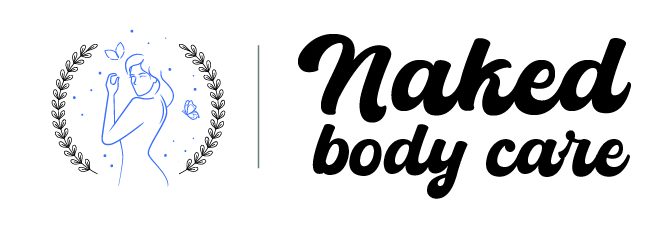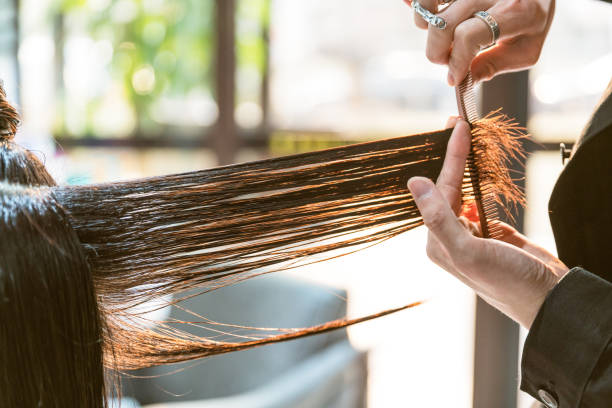My hair has this funny habit of reminding me that I don’t have control over my life. On good days it feels like I’m in a Pantene ad, and I am more confident and ready to face the day. I get frizzy and greasy hair on bad days, which triggers anxiety and irritation.
When I doubted a new romance, I watched Netflix’s most unique Gilmore Girls series, where Emily Gilmore cleans out her home based on Marie Kondo’s book The Life-Changing Power of Tidying Up. My house will stay as it is. I don’t mind. But my hair?
What if the mess in my life is reflected in my hair?
Listen to me.
When I have an out-of-control hair day, sometimes it causes me to feel anxious or depressed. One look at myself can send me spiraling.
What’s the deal with greasy hair? What’s wrong with me?
Frizziness? Total loss of control.
What if you have multiple bad hair days?
Some studies suggest that your hair’s look affects your mood more than you think. Researchers at Stanford conducted a series of five studies that examined class inequality. They found the memory of a bad day with hair affected participants’ perceptions of inequality. What about the actual event?
Bad hair days like the San Francisco fog can cast a downpour on your life. It’s not a downpour, but it is gray and annoying. According to Dr. Juli Fraga in San Francisco, a licensed psychologist specializing in women’s health, “Bad Hair, like an ugly outfit, can impact mood because it impacts our perception of ourselves.”
Investing in hair care can boost your confidence and happiness.
The idea that hair can be a barometer of mood, confidence, and self-esteem is not new. The symbolism behind hair has been around for many years. It’s tied to health (hair loss can be a significant concern for men) and femininity.
In 1944, French women had their heads cut off as punishment because they collaborated with the Germans. Women who shave off their hair are linked with cancer. In pop culture, women who cut their hair are sensationalized.
Entertainment Weekly published a special about Emma Watson’s new pixie haircut the same day. This still sends me the same message: Appearances play a part in the feedback loop, building self-worth and confidence.
Well-maintained hair is an external and personal sign of control. But even learning to control my hair took some time. My dilemma was due to needing to be more consistent and affordable.
Your relationship with your hairdresser is one of the most valuable ones you will ever have.
Before I began working full-time, I would search Craigslist and look for free haircuts, use trainees as models or find budget salons for less than $20. I almost always left the salon as if I were wearing someone else’s hair.
It would have been nice to know that your relationship with a hairdresser is similar to that with a doctor. As they get to understand you, the first few visits can be awkward but necessary.
They’ll eventually be able to tell you what styles suit your face, which products are best for your hair, and how to deal with the ups and downs in your life.
Before I knew that, I distrusted my hairdressers for a very long time. I always brought a picture to each session. Bangs? Zooey Deschanel. Shoulder-length hair? Alexa Chung. Layers? Some Instagram models. What I said was… “Make her look like me.”
After two years of college, I finally decided to pay $60 for a haircut. A former trainee was now working full-time. In the beginning, I showed photos of hairstyles by other stylists. My anxiety started when I saw a picture of a YouTuber on my phone.
I started to sweat and became very nervous. What if she had been insulted every time I showed her a picture? What if I insulted all the hairdressers that I had ever visited?
Listen to me, could hair therapy help reduce residual sadness in the body?
The importance of hair care therapy is underrated. Sometimes, talking to my friends is not enough. Shopping is temporary, and I am too scared to see a therapist. What about a haircut instead?
Getting a haircut is like a combination of retail therapy, talk therapy, and self-care in a two-hour pampering session. Yes, please. If it’s done right, a good cut can last me over three months. Your hairstylist is like the therapist you desire- someone who is always by your side, no matter your story.
I dated a guy who always petted my hair in public and privately. I learned three months later that he also – for lack of an appropriate euphemism – stroked other people’s tresses. Marie Kondo was my inspiration when deciding whether the relationship would be worth pursuing.
In her book, “The Life-Changing magic of tidying up,” she states that the best criterion to use when deciding what to keep is whether you will be happy if you keep it.


